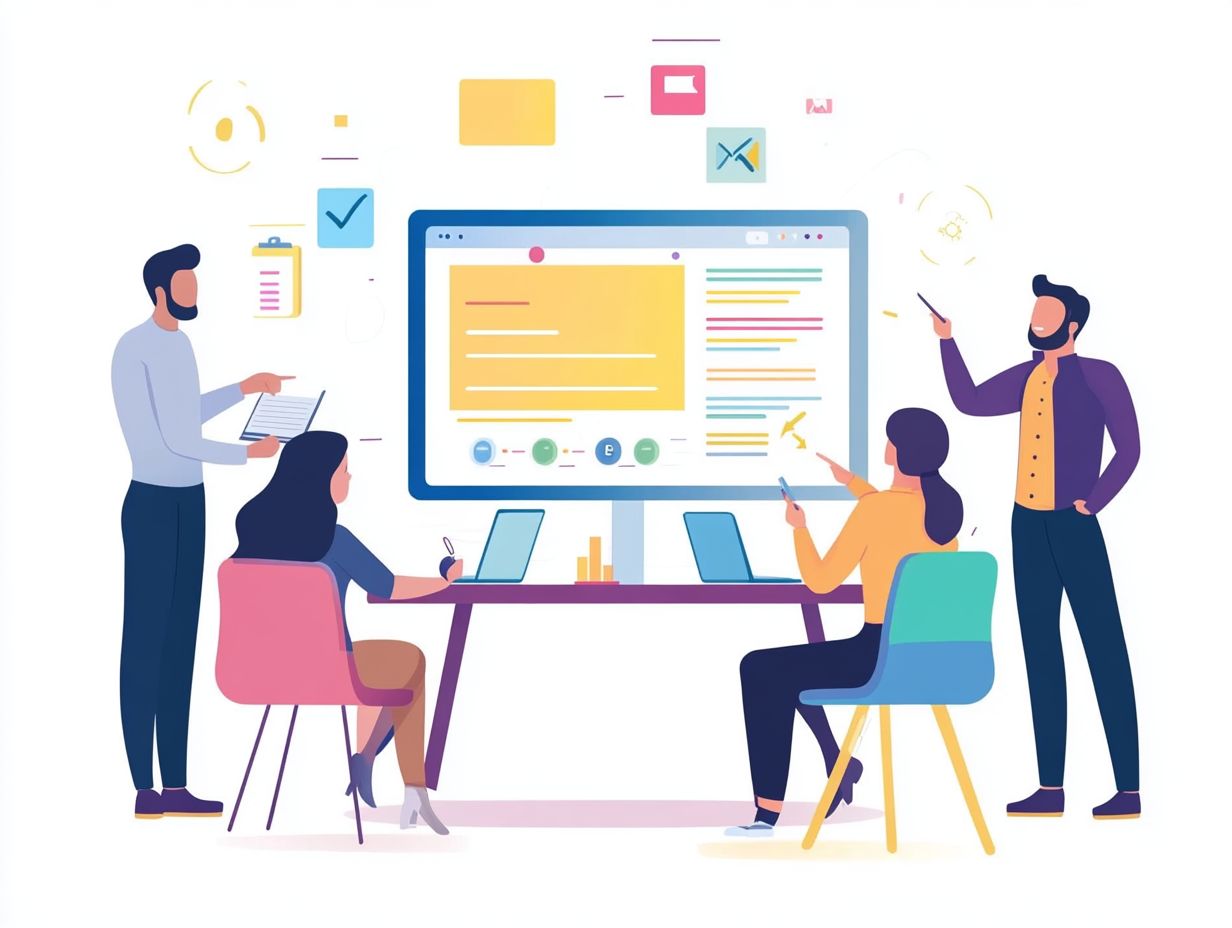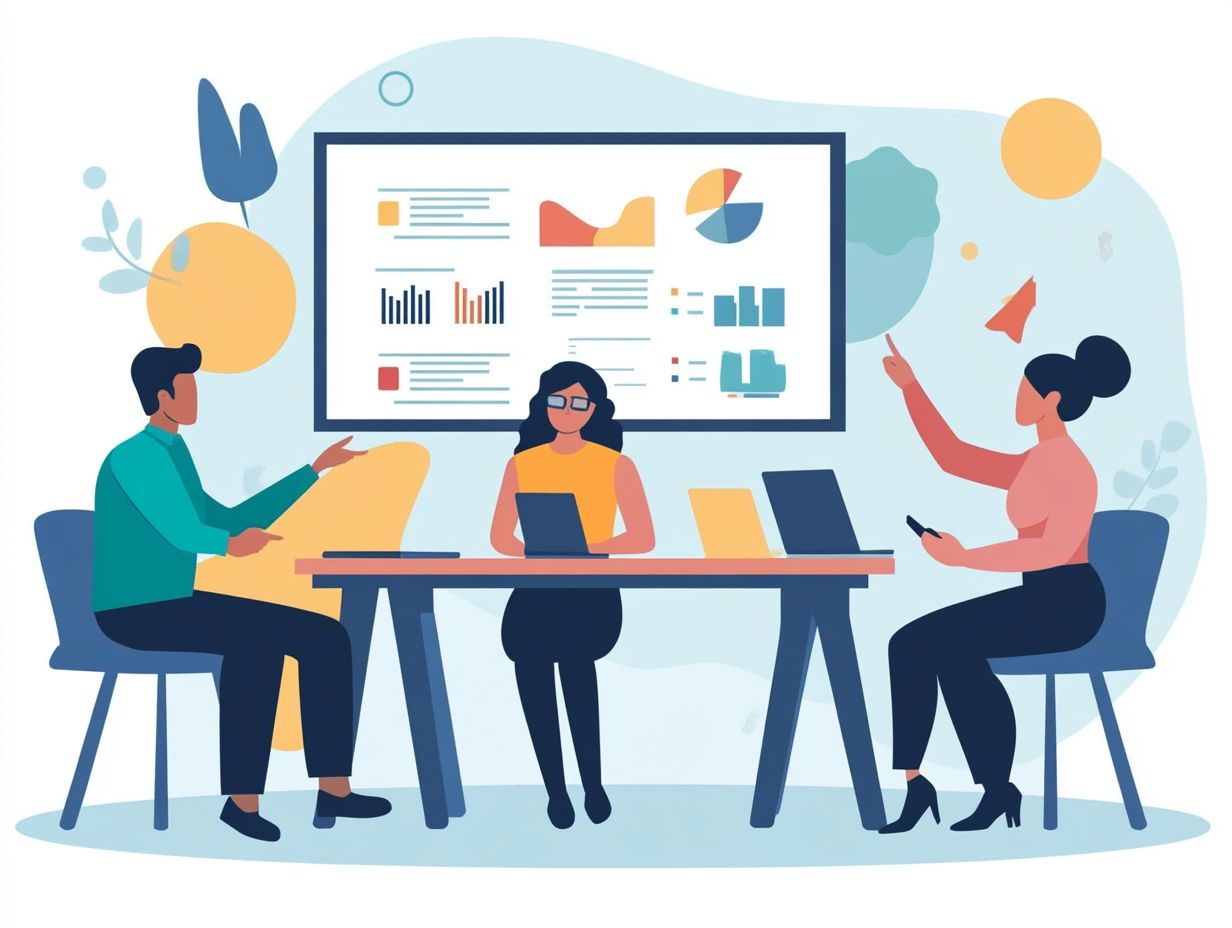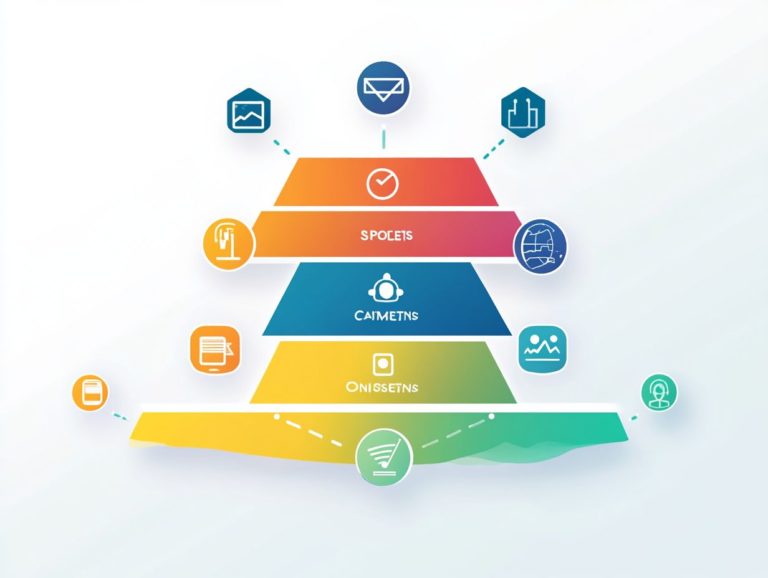How to Train Your Team on CRM Best Practices
In today s fast-paced business landscape, mastering Customer Relationship Management (CRM) is essential for achieving success. This article delves into the significance of CRM and how effective training can elevate your team s performance to new heights.
You ll discover the myriad benefits of refining CRM best practices, identify crucial training areas, and receive guidance on crafting a comprehensive training plan. From implementing effective strategies to measuring success, you ll learn how to empower your team for greater efficiency and enhanced customer satisfaction.
Join us as we explore the power of CRM training!
Contents
- Key Takeaways:
- Why Your Team Needs CRM Training Now!
- Identifying Key Areas for Training
- Creating a Training Plan
- Implementing the Training
- Evaluating the Success of the Training
- Frequently Asked Questions
- What are CRM best practices and why is it important to train my team on them?
- How do I determine which CRM best practices are most relevant to my team’s needs?
- What are some key areas that should be covered when training my team on CRM best practices?
- How should I approach training my team on CRM best practices?
- What are some potential challenges I may face when training my team on CRM best practices?
- How can I measure the effectiveness of my team’s training on CRM best practices?
Key Takeaways:
- Train your team on CRM best practices to improve efficiency and customer satisfaction.
- Identify key areas of improvement by assessing current CRM practices and identifying gaps.
- Create a training plan with specific goals, materials, and techniques.
- Evaluate the success of the training through measurable results and make necessary adjustments.
Discover CRM: What It Is and Why You Need It!
Customer Relationship Management (CRM) is an essential software system that simplifies how your sales, service, and marketing teams work together. It enhances the way you manage customer interactions and streamlines processes.
As Val Riley points out, implementing a robust CRM system enhances data accuracy throughout your organization, giving your teams the power to deliver exceptional customer service while boosting sales performance and marketing effectiveness.
This tool helps your sales team track leads efficiently. It also equips your marketing professionals with invaluable insights through comprehensive data integration.
By fostering collaboration among different departments, CRM systems create a user-friendly interface that simplifies access to information and automates routine tasks.
The result? Strengthened customer relationships, as your teams gain a deeper understanding of clients’ needs and preferences.
Thanks to automation features, you can ensure timely follow-ups and personalized communication, making customers feel valued and heard. This approach ultimately cultivates increased loyalty and retention.
Why Your Team Needs CRM Training Now!
Training your team on CRM best practices brings a wealth of benefits, including elevated sales performance, heightened customer satisfaction, and streamlined efficiency in workflows. For more insights, check out these tips for successful user training in CRM.
By providing your team with the essential skills and knowledge, you can truly maximize CRM features and your investment in CRM software. This alignment ensures that everyone involved is united in their efforts to meet and exceed business objectives.
Improving Efficiency and Customer Satisfaction
Improving efficiency and customer satisfaction is your prime objective when implementing CRM systems, as streamlined processes empower your teams to respond swiftly to customer needs.
By harnessing CRM metrics and insights, you gain a deeper understanding of customer behavior, which leads to enhanced service delivery and stronger relationships.
Automating tasks lets your staff focus on important activities, ultimately boosting user engagement.
CRM tools enable personalized communications, ensuring that your interactions are tailored to individual preferences and historical data. This level of service enhancement fosters loyalty, as customers feel understood and appreciated.
Real-time analytics provide you the power to identify trends and anticipate needs, driving proactive service that resonates with your clients.
In this way, strategically integrating CRM technology not only enhances operational efficiency but also cultivates a more satisfying customer experience.
Identifying Key Areas for Training
Identifying key areas for CRM training is essential for maximizing the effectiveness of your investment. This focused approach enables organizations to target specific skills and knowledge gaps within their teams.
By conducting a thorough evaluation, you uncover areas needing improvement and align training initiatives with your broader business goals. This ensures that your team members are well-equipped to leverage CRM systems effectively, driving success across the organization.
Assessing Current CRM Practices

Assessing your current CRM (Customer Relationship Management) practices is essential for understanding just how effectively your team is utilizing the system. This ensures that data is entered accurately and customer interactions are tracked properly.
By evaluating workflows, numbers and data, and user engagement, you can identify both strengths and weaknesses in your CRM usage, as well as pinpoint areas that may benefit from targeted training.
Employing various assessment methods think comprehensive surveys, performance reviews, and CRM data audits will yield valuable insights into system usage and effectiveness. These approaches not only deepen your understanding of individual user interactions but also reveal trends that might highlight broader challenges within the team.
By collectively analyzing these metrics, you can guide the training process, tailoring sessions to enhance user collaboration, boost system proficiency, and ultimately drive improved customer satisfaction. A systematic approach to these evaluations gives the power to your team, ensuring they consistently leverage their CRM capabilities for maximum efficiency.
Identifying Gaps and Areas for Improvement
Identifying gaps and areas for improvement in your CRM practices enables you to channel your training efforts precisely where they’re needed most, ensuring a more effective allocation of resources.
Analyze performance metrics, user feedback, and workflows to uncover opportunities for enhancement that will drive better results and boost team efficiency.
This approach helps you benchmark current performance against industry best practices while illuminating specific areas where skills may be lacking. By implementing focused training strategies tailored to these identified gaps, your team can enhance its capabilities, leading to improved collaboration and communication.
Prioritizing skill development in critical areas like data management and customer engagement can significantly optimize your CRM outcomes. Ultimately, addressing these performance discrepancies paves the way for a more competent and cohesive team, fully equipped to leverage CRM tools to their utmost potential.
Creating a Training Plan
Get ready to elevate your team’s skills! Crafting a comprehensive training plan is crucial; it ensures your team has the skills they need to perform effectively.
This plan must set clear goals, develop relevant content, and create a timeline for implementation. By doing so, you create a structured approach that significantly enhances team performance.
Developing Content and Materials
Crafting effective content and materials for CRM training is essential for ensuring that you and your team fully grasp the system’s features and best practices. High-quality documentation, user-friendly training manuals, and interactive online courses can significantly elevate your learning experience and boost engagement throughout the training process.
Here are some effective training formats to consider:
- Video tutorials that visually demonstrate key processes
- Reference guides that provide quick access to essential information
- Case studies that showcase successful implementations
By tailoring these materials to reflect your organization s specific needs and goals, you create a more targeted approach that equips each team member with the knowledge and skills necessary to navigate the CRM system effectively.
Aligning training content with organizational objectives not only enhances understanding but also nurtures a culture of continuous improvement.
Setting Goals and Objectives
Setting clear goals and objectives for your Customer Relationship Management (CRM) training is essential for measuring success. This clarity drives improvement within your team, enabling you to track progress effectively and ensure alignment with your overall business objectives.
When you establish specific, measurable outcomes, you maximize the potential ROI of your training initiative. These SMART goals offer a structured framework that directs the training’s focus and ensures that each session hones in on the key competencies necessary for enhancing performance.
By incorporating realistic and time-bound elements, you can periodically assess achievements and adjust your strategies as needed. This approach not only fosters accountability but also gives the power to your team members, enabling them to witness tangible results from their efforts.
Ultimately, well-defined objectives cultivate a cohesive training environment where every participant understands their role and expected outcomes. This clarity leads to more effective evaluations and productive enhancements to the overall training process.
Implementing the Training

Implementing CRM training effectively demands strategic planning and an emphasis on engaging techniques that resonate with your team members. By utilizing a blend of online courses, hands-on workshops, and collaborative activities, you ensure the training is informative and enjoyable, especially when you incorporate best practices for using CRM software.
This approach enhances retention and elevates performance across the board.
Effective Training Strategies and Techniques
Effective training strategies and techniques for CRM systems are essential for keeping users interested and improving knowledge retention across your teams. Interactive workshops, gamification, and role-playing create a dynamic learning environment.
Incorporating group discussions encourages collaboration, allowing you to share diverse perspectives and enrich the overall training experience. Case studies simulate real-world scenarios, providing practical examples that reinforce theoretical concepts.
As you and your team become more confident and proficient, you can expect improved performance metrics and a smoother transition toward user adoption. Combining these techniques fosters a culture of continuous learning and adaptability, crucial for maximizing the benefits of CRM systems.
Evaluating the Success of the Training
Evaluating the success of your CRM training is crucial for understanding its impact on team performance and identifying areas that may need further refinement.
By leveraging metrics like user feedback, performance tracking, and engagement levels, you gain valuable insights that guide your future adjustments. This approach enhances your current practices and fosters a culture of continuous improvement in your CRM efforts.
Measuring Results and Making Adjustments
Measuring results and making adjustments after training is essential to ensure your CRM initiatives deliver the outcomes you desire and enhance overall performance.
By systematically analyzing training effectiveness through key performance metrics and user feedback, you can refine your training strategies for maximum impact. This ongoing evaluation process gives you the power to identify knowledge gaps and areas that require enhancement, allowing for a tailored approach to training.
Leveraging data helps pinpoint what resonates best with users and enables your teams to adjust their engagement tactics and learning materials accordingly. Integrating real-time analytics into your training programs keeps your CRM practices relevant and effective.
Continuous improvement in these areas enables you to adapt swiftly to changing market dynamics and evolving user expectations.
Frequently Asked Questions
What are CRM best practices and why is it important to train my team on them?

CRM best practices are effective ways to use a CRM system. Training your team on these practices, including strategies for engaging users during CRM training, boosts customer satisfaction, increases sales, and streamlines processes.
How do I determine which CRM best practices are most relevant to my team’s needs?
First, assess your team’s current CRM processes. Identify any problems that need improvement through surveys, interviews, or customer feedback.
With this information, research and prioritize the best practices that will address these specific needs.
What are some key areas that should be covered when training my team on CRM best practices?
Key areas to cover include data management, creating and managing customer profiles, and communication protocols.
Track and analyze customer interactions, and learn ways to connect with other tools. Train on security and privacy measures to properly handle sensitive customer data.
How should I approach training my team on CRM best practices?
Dive deep into hands-on training! It’s essential for your team’s success. Use a mix of online training modules, group workshops, and one-on-one sessions to cater to different learning styles.
Regularly review and reinforce the best practices to ensure they become a part of your team’s daily processes.
What are some potential challenges I may face when training my team on CRM best practices?
Resistance to change is a common challenge. Some team members may prefer old processes and may not see the value in adopting new practices.
Clearly communicate the benefits and provide support to help them adjust. The learning curve can also be steep for those unfamiliar with CRM systems, so ongoing support is crucial.
How can I measure the effectiveness of my team’s training on CRM best practices?
Track metrics like customer satisfaction, retention rates, and sales growth. Gather feedback from team members through surveys to assess their understanding and application of the best practices.
These metrics will help you identify areas for improvement and adjust your training strategy as needed.
Start training your team today to unlock the full potential of your CRM system!






